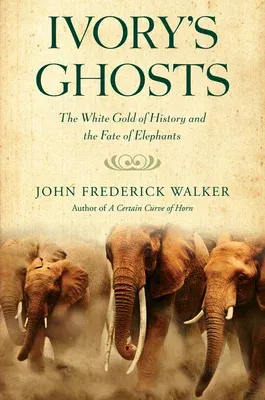John Frederick Walker
(Author)Ivory's Ghosts: The White Gold of History and the Fate of ElephantsPaperback, 2 February 2010

Qty
1
Turbo
Ships in 2 - 3 days
In Stock
Free Delivery
Cash on Delivery
15 Days
Free Returns
Secure Checkout

Print Length
320 pages
Language
English
Publisher
Grove Press
Date Published
2 Feb 2010
ISBN-10
0802144527
ISBN-13
9780802144522
Description
Product Details
Author:
Book Format:
Paperback
Country of Origin:
US
Date Published:
2 February 2010
Dimensions:
20.83 x
13.72 x
2.54 cm
ISBN-10:
0802144527
ISBN-13:
9780802144522
Language:
English
Location:
New York
Pages:
320
Publisher:
Weight:
317.51 gm